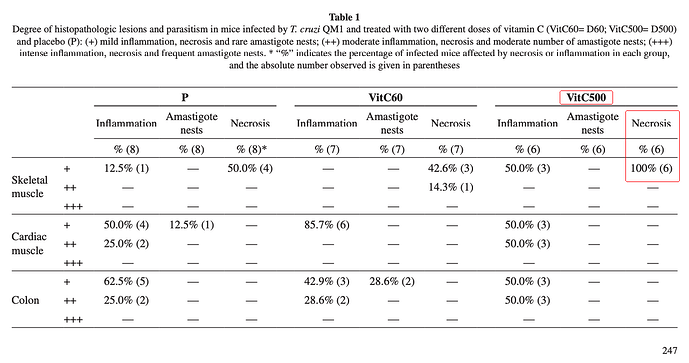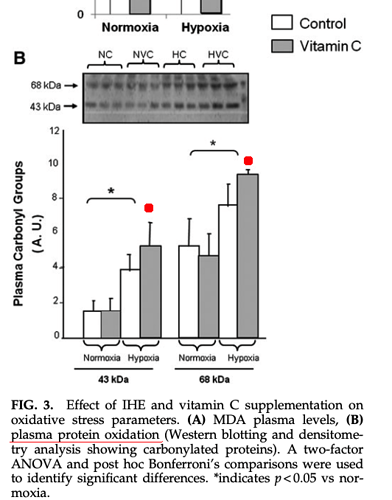I’m looking for a not too acidic, not too bloating way to get a lot of vitamin C.
Rose hips have carbs I know, but I wouldn’t imagine one or two would have many.
What do they taste like? Are they sour/acidic? I can’t really find the nutritional value of just one.
Rose hips
They’re bland and mealy when eaten fresh but that’s when they have the most C. Think unjuicy apple with no flavor. Dried rosehips often have C added.
Lemon and limes are a much more low carb way to get more vit C. I can’t even imagine eating a rose hip. Rose hip teas usually have added Vit C. So tea would be the way to go.
I would think 1-2 rosehips has very little vitamin C but I don’t know details, I don’t care about my vitamin C intake… Vitamin C is so very cheap, you can buy it in big amounts… I understand if you don’t want to supplement it though. I don’t do that either and sometimes wonder how I didn’t get scurvy when I live on eggs (no vitamin C) and super well done meats… I have off days and tiny amount of plants but they don’t bring much. Oh well. It seems some vitamin C in my meat survives and it’s known we need very little on carnivore and I may be close enough… I do like lemon though, my number one fruit nowadays.
Rosehip is very nice, very tasty, very sweet! I love it but the big numerous hairy seeds aren’t nice so I only eat 1-2 on my winter walks. Pretty and irresistible!
This is for ripe rosehips in winter, there are dried ones for tea, never had them.
According to Verdin et al., a ketogenic diet greatly reduces the body’s need for Vitamin C. This is because β-hydroxybutyrate operates on a specific gene complex and restores the body’s natural anti-oxidative defences. (Elevated insulin turns on these genes, which inhibit said defences; β-hydroxybutyrate turns the genes off again, thus re-enabling the defences.)
Moreover, fresh meat in the diet has been known for centuries to prevent scurvy. The British navy turned to stocking lemons and limes on board ship, simply because it was a lot easier than keeping enough livestock to last an entire voyage in such cramped quarters. After the few animals they could keep were all eaten, the sailors’ diet consisted entirely of ship’s biscuit and salt beef, hence the scurvy that eventually developed on long deployments.
Organic Acerola Cherry Powder if you feel you need it. Vitamin C also acts as a pro-oxidant and will worsen post viral recovery.
Really? Please provide data in support of that assertion, or explain why the following study is wrong:
Frei B, England L, Ames BN. Ascorbate is an outstanding antioxidant in human blood plasma. Proc Natl Acad Sci U S A 1989;86:6377-81. [PubMed abstract]
Personally, I wouldn’t get into this antioxidant/pro-oxidant debate. For instance, I’m taking some alpha lipoic acid. Some people call this a “powerful” antioxidant. Meanwhile, Brad calls it a pro-oxidant:
Same chemical, different names. Which one is correct? I neither have the time nor the knowledge to determine that.
SciELO - Brazil - EFFECTS OF VITAMIN C SUPPLEMENTATION ON THE CHRONIC PHASE OF CHAGAS DISEASE
Scientists expose vitamin C’s pro-oxidant alter ego
Vitamin C Supplementation Does not Improve Hypoxia-Induced Erythropoiesis
Many of us are exposed to air pollution on a daily basis and taking an anti-oxidant at high doses that also has a pro-oxidant nature in the presence of oxidants, is basically asking for trouble. It’s like when cigarette smokers consumer beta-carotene and develop lung cancer. The best exogenous antioxidant without a pro-oxidant nature is Astaxanthin.
A lot of people also assume that polyphenols in fruits are anti-oxidants. Polyphenols are hormetic stressors that stress our antioxidant system to produce Glutathione.
High dose Vitamin C supplement is deadly when the body is in a diseased state. We want to induce controlled Autophagy with sufficient but not excessive quantities of natural autophagic vitamins; such as sufficient non-synthetic high quality Vitamin K2 and/or CoQ10 (w/out pepper) supplements when we’re in a diseased state and prevent the immune system from trying to clean up the mess.
I’m confused. The paper cited in the first article is not about the production of free radicals by ascorbic acid, which is what the title of the Guardian article implies. It is rather about the role of hydrogen peroxide (a substance produced naturally in the human body) in mediating the relaxation of blood vessels, and the role of ascorbic acid (as one of the substances tested) in reducing oxygen radicals to form the peroxide. I’m not reading that as oxidation, sorry. And furthermore, the measured effect of ascorbic acid was not particularly significant, with high p-values (0.05 and 0.01; in physics, by contrast, the p-value must be less than 0.001 to be taken seriously). Also, why was the test done on samples of the iliac arteries of rabbits? I don’t recall that rabbit arterial systems are all that close to humans, but I could well be wrong about that.
Your second link is to a study of the effect of Vitamin C on the creation of new red blood cells (erythropoiesis), which showed no effect whatsoever. That is useful to know, but I don’t see any connection with oxidation in that paper. Did I miss something? Of course, this is a rat study, so the connexion with the activity of Vitamin C in the human body, while certainly suggestive, is not definitive.
@PaulL
First:
Chagas disease is also similar to covid. They both cause fibrosis which can lead to necrosis and Vitamin C speeds this up.
Third:
We aimed to determine whether supplementation with vitamin C is implicated in the regulation of erythropoiesis and in the oxygen-carrying capacity of the blood, and also whether antioxidant supplementation prevents the oxidative stress associated to intermittent hypoxia.
There was no change on MDA levels after intermittent hypoxic exposure in any experimental group. However, we found an increase in plasma protein oxidation in both hypoxic groups.
I know first hand that all this is true because I physically experienced it 10 fold with my chronic disease.
In the hypoxia study, it is the lack of oxygen that causes the oxidative stress, not the Vitamin C. The point of the study was to see if the Vitamin C improved the rate at which new erythrocytes were formed. It had no effect, positive or negative, on the growth of red blood corpuscles. Whether the vitamin had any effect on the level of oxidation appears not to have been measured, so far as I could tell.
And I fail to see how Chagas’ disease, which is caused by a parasite, is relevant to this discussion at all. While I can believe that Vitamin C would have a negative effect on necrosis, I don’t see any mechanism posited in that table. I believe that if oxidation were involved that would need to be demonstrated. And further, it would need to be demonstrated that it was the Vitamin C that caused the oxidation directly, in order to prove your point. But I can think of a couple of other mechanisms by which the vitamin might have had a deleterious effect, and they don’t inolve oxidative stress.
In the hypoxia study. Lack of oxygen does cause oxidative stress BUT vitamin C promoted the initial oxidative stress in the hypoxic animals and therefore Vitamin C is acting as a pro-oxidant (promotes oxidation). An increase in plasma protein oxidation in the hypoxic animals taking Vitamin C isn’t an indication of the pro-oxidant nature of Vitamin C?
My initial statement wasn’t what you assumed. I didn’t say that Vitamin C always acts as a pro-oxidant. I said that Vitamin C also acts as a pro-oxidant and will worsen post viral recovery.
Fibrosis turns into necrosis.
Fibrosis: How collagen becomes ‘stiff’ | eLife (elifesciences.org)



